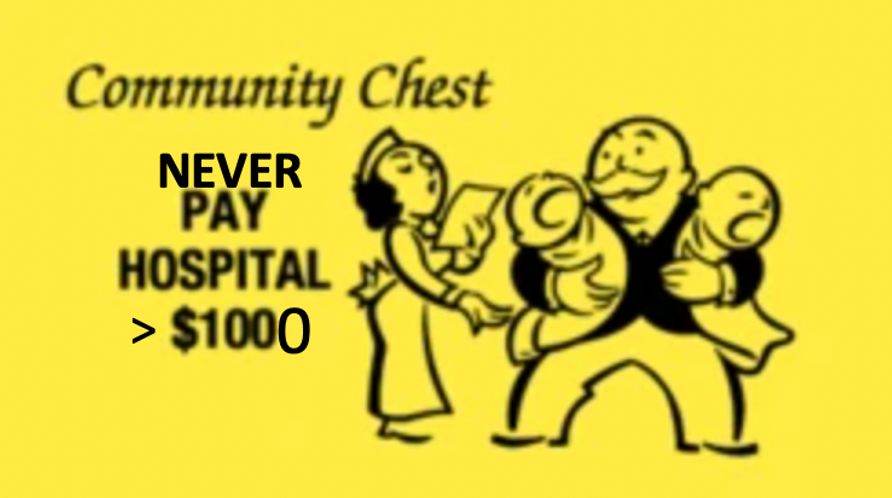Six Reasons to Add Health Education to Your Employee Benefits, Part I
- Jul 14, 2025
- 3 min read
Updated: Jul 16, 2025
Would you give every employee an unlimited budget to spend however they like?
No. of course not. But isn't that exactly what you do with healthcare? Give them a basically unlimited budget with no training?
No matter how good and engaging your benefits are, and how well employees understand them (unlikely, but we've got your back there too), employees still need to be trained on how to use healthcare itself. That is the missing link. And this posting offers six good reasons that helping employees using healthcare wisely will pay off for your employees and for you.
It's not enough to "empower" employees by "giving" them. high-deductible plan and an HSA. That would be like throwing someone into a pool without also teaching them how to swim.

In both cases, education is the missing link. And here are three of the six good reasons that helping employees use healthcare wisely will pay off for your employees and for you.
#1: You give employees an unlimited budget for healthcare.
To generalize from the equipment example, is there any other line item in your P&L where you give employees an unlimited budget, but with no training in how to spend it? Further, when they do spend it, you have no insight into how they are spending it, except at an aggregate level. If you thought they would spend it wisely on their own due to "healthcare consumerism" where you give them a high deductible, the next two reasons explain why that is unlikely.
#2: The healthcare “system” tries to get employees to spend more.
A tremendous amount of money has gone into creating the highest-tech, highest-cost healthcare assets the world has ever seen. Any fixed asset costs money when unused, so utilization is key to profitability. It was famously observed as early as 1961 by economist Kenneth Arrow that having insurance for healthcare creates demand for healthcare.
Providers know this. They have profit targets they must hit, and they aren’t going to hit them unless people use their systems.
#3: For exactly that reason, much of what employees spend their/your money on is useless and potentially harmful.
Largely as a result of Reasons #1 and #2 – having an unlimited budget to spend on an insatiable system – Americans use too much healthcare. You may already have a “consumerism” solution, which helps an employee find the best price for common tests and procedures. Quizzify can direct an employee to that solution, but our specialty is addressing the more basic question: “Should I get this test/procedure/drug in the first place, or do the potential risks and harms outweigh the possible benefit?”
After playing Quizzify and getting a more balanced view of healthcare than providers and direct advertising might give them, employees may decide for themselves that the answer in many cases is: “No.”
This is not an original observation on our part. The best study done on the subject reveals 40% waste. Many books and articles have been written on this subject...

As these and other titles show, Americans are the most overscreened, overdiagnosed, overtreated, and overmedicated society on earth. Uniquely, Quizzify addresses this avalanche of unnecessary high-cost medical care head-on, through trivia quizzes teaching that "just because it's healthcare doesn't mean it's good for you,” and encouraging more interaction at a primary care level instead.
Stay tuned for Part Two of our Six Reasons to Add Employee Health Education to Your Employees Benefits.
Chronic or non-chronic, employees engage with Quizzify more than with any other vendor. Recalling the opening paragraph about how many employees don’t engage at all, one reason for this is employees not wanting to share personal health information. Quizzify is unique in the universe of behavior-change vendors in that no personal health information (PHI) is required or even requested.
Add that attribute to Quizzify being educational and fun, and you can see why we are able to 100% guarantee, with no asterisks, that you pay only for people who complete the quizzes...and say they learned something from them.
Or, put another way:
If they don't play, you don't pay;
If they don't learn, we don't earn.




